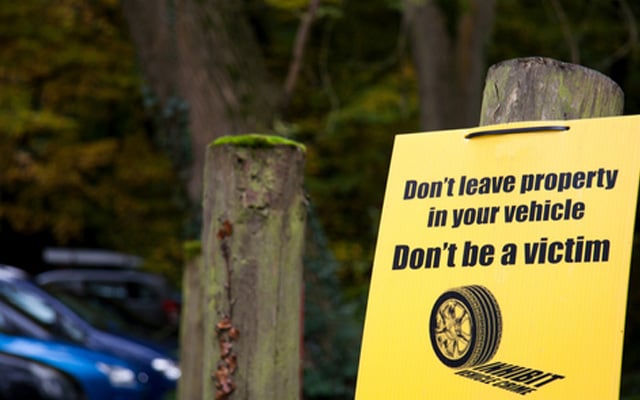There’s clearly a need for landowners and private car park operators to have some control over those who park but enforcement must be fair and reasonable.
After a long running AA campaign, wheel clamping on private land was made a criminal offence from October 2012.
- Clamping may still be carried out lawfully at some railway stations, airports, or local authority housing under local by-laws.
- The DVLA, Police and some other government agencies can still use clamping too.
There’s been a surge in the number of Parking Charge Notices (tickets) issued by private parking enforcers since 2012.
- Tickets can be issued remotely using CCTV cameras, or by parking attendants on foot who can ticket a lot of vehicles in a relatively short time.
- Parking control companies can pursue vehicle keepers for any unpaid Parking Charge Notices
- Only parking enforcement companies who are members of an approved operator scheme are allowed to obtain vehicle keepers’ details from the DVLA.
The AA campaigned for an independent parking appeal service as AA members began falling victim to poor practices by these companies.

Contract and trespass
The AA, British Parking Association, private parking enforcement companies and other groups all wanted private parking enforcement to be fully regulated by government but this didn’t happen, so it relies on the laws of contract and trespass.
Put simply, you’re considered to have accepted the parking terms and sanctions if there’s adequate signage.
Enforcing parking rules by issuing tickets
Most private parking spaces are made available for use with conditions attached:
- Parking can be time limited
- Charges can apply through use of pay and display systems for example
- There may be permit-only parking for residents, employees or visitors who must display a current permit
Providing the conditions are reasonable and clearly indicated on signage, any breach can be dealt with.
General advice when parking on private land
Always look for signs setting out the parking rules
- Stick to the rules – parking within a marked bay or not using bays reserved for disabled badge holders for example.
- Enforcement activity may not be visible – cameras may be in use
- If you find a Parking Charge Notice on your car don’t ignore it.
- If you do get a ticket but think it’s wrong or unfair, gather evidence – a note of signage and photos – before leaving
- Call the police if your car’s clamped in a car park where no by-law is displayed
- If heavy-handed ticketers start demanding money on the spot or threatening you to pay in cash, drive away or call the police.
- Any bona fide parking control company will allow payment by post or credit card after the event.
Approved operators
There are now two very different parking ticket regimes operating on private land.
DVLA will only share keeper details with members of an Accredited Trade Association (ATA) which has an enforceable code of practice governing the conduct and operations of their members.
There are currently two ATAs for parking enforcement:
- The British Parking Association
- The International Parking Community (IPC) [previously known as Independent Parking Committee]
Private enforcers who aren't members of an Accredited Trade Association may still issue tickets under contract/trespass law.
- Parking conditions must be clearly signed
- Any disputes must be resolved through the civil court
- The appeal service isn’t available
How much can they charge you?
- The normal maximum for a member of an Accredited Trade Association is £100 which must be discounted by up to 40% for prompt payment.
- If an ATA member demands more, it must be fully justified by for example setting out the consequential losses caused by your breach of their terms and conditions.
- Others will set their own level of sanction but this must still be set at a fair value representing consequential loss.
What should you do if you get a Parking Charge Notice on your car?
- Check for signs setting out the parking rules to ensure the ticket’s justified.
- If you don't think the ticket’s justified, gather evidence such as photos or details of witnesses.
- If you agree with the ‘ticket’, irrespective of who issued it, then you should pay it as soon as possible.
- Don't pay cash to anyone issuing a Parking Charge Notice (ticket)
- If you don't think the ticket was justified and it was issued by a member of an Accredited Trade Association then follow the procedure to challenge it as set out on the ticket, or write to the firm which issued it. It's best to use recorded post.
- If you don't think the ticket was justified and it wasn't issued by an ATA member, then gather your evidence and wait for them to take you to court.
What should you do If you get a Parking Charge Notice in the post?
- If you agree with the ‘ticket’ then you should pay it as soon as possible.
- If you’re the registered keeper but weren’t the driver at the time, you can provide the driver's name and address to the parking enforcement company and they will then try to get the driver to pay.
- If you don’t agree with the ticket, follow the procedure set out on the ticket, or write to the firm which issued it. It's best to use recorded post.
- Keep all paperwork. If the parking company doesn't reply promptly, check that they received your challenge then wait to hear from them.
- If you weren’t the driver but the driver doesn’t pay or you don’t name the driver, then you as the keeper become liable for the Parking Charge Notice.
